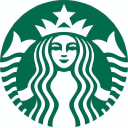Starbucks Looks to Tap the Specialty Coffee Market in India
Starbucks (NASDAQ:SBUX) is the world’s leading roaster and retailer of specialty coffee. Through its global network of owned and franchised coffee retail outlets, Starbucks offers a wide range of products from coffees and teas to sandwiches and brewing equipment. It competes with McDonald’s (NYSE:MCD), Caribou Coffee (NASDAQ:CBOU) and Peet’s Coffee (NASDAQ:PEET) in the broader market for specialty coffee.
 We estimate that Starbucks’ company-owned stores constitute around 46% of our estimated $26.41 value for the company’s stock while franchised stores generate an incremental 30%. Our price estimate stands about 18% below the market price.
We estimate that Starbucks’ company-owned stores constitute around 46% of our estimated $26.41 value for the company’s stock while franchised stores generate an incremental 30%. Our price estimate stands about 18% below the market price.
- Down 7% Since 2023, Can Starbucks’ Stock Reverse This Trend Post Q1 Results?
- Down 26% From Its Pre-Inflation Shock High, What Is Next For Starbucks Stock?
- After 6% Drop This Year, Pricing Growth To Bolster Starbucks’ Q4
- Can Starbucks Stock Return To Pre-Inflation Shock Highs?
- Starbucks’ Stock To See Little Movement Past Q3?
- Starbucks Stock To Likely Trade Lower Post Q2
We’ve previously discussed how Starbucks can benefit from an increasing preference for premium coffee from a rising demographic of affluent young professionals in emerging markets like Brazil, China and India. With expanding wealth and discretionary spending in many emerging markets, the growing size of young middle class working professionals will help grow future demand and brand recognition. (See Starbucks Shielded from Further Downside Due to Rising Input Costs.)
The Opportunity in India
Starbucks already has a presence in China, but the Indian market remains largely untapped. Recently, Starbucks entered into a partnership with Tata Coffee the nation’s biggest coffee produce to help tap the country where coffee consumption has increased by 89% in the past 13 years. Tata Coffee is a part of India’s Tata Group, a conglomerate that runs hotels, steel mills, tea plantations as well as Jaguar cars. Tata Coffee owns the Eight O’Clock Coffee Co. in the U.S. and is a big coffee producer in India.
Through the agreement, apart from sourcing beans from south India and roasting them locally, the company plans to open stores in Tata retail locations and hotels. One of these chains, Tata’s Taj hotels, are the most upscale in India. Later on, the company plans to select another Indian partner with which it will develop stand alone Starbucks stores in India.
Though India largely consists of tea drinkers, the demand for coffee is rising, largely due to a changing demographic and globalization. According to the Tea Board and Coffee Board of India, last year people in India consumed around 700,000 tonnes of tea grown in the country compared with 75,000 tonnes of coffee presenting plenty of room for growth.
Aspirational Impact of Starbucks
Many people also believe that the preference for Starbucks is due to the social status associated with drinking espressos and cappuccinos from upscale specialty brands, rather than an instinctive liking for it. For example, a south Indian filter coffee typically costs only around 10 rupees (about 22 US cents) at small restaurants compared to cappuccinos and espressos that start from 75 rupees at upscale specialty outlets. Starbucks would certainly be priced higher and might gain additional customers through the aspirational appeal.
However, competition is increasing in India and Starbucks may fall behind if it does not push ahead quickly. Currently, the market leader is the Indian-owned Cafe Coffee Day chain which has more than 1,000 outlets, followed by foreign-owned chains Barista Lavazza and Costa Coffee, which plans to expand further in India. Currently only 22% of urban youth go to cafes, and according to Cafe Coffee Day executives, the Indian market has the potential to house up to 5,400 cafes. Currently less than one-third of those cafes exist. [1] [2]
International Expansion via Franchise Stores
The number of franchised Starbucks stores increased at an average annual growth rate of just over 15% while international franchised stores increased by about 17%. Going forward, we expect the number of franchised Starbucks stores to increase at an average annual growth rate of around 5.5%, reaching around 12,000 by the end of our forecast period.
In China the company recently announced plans to more than triple the number of outlets to about 1,500 in five years. If Starbucks is able to successfully expand in the ripe Indian market as well as other emerging markets, there could be upside to our forecasts. If the number of franchised Starbucks stores increases at an average annual growth rate of 2 percentage points higher than our projected growth rate, reaching around 14,000 by the end of our forecast period, it would chip in just under 10% to our current price estimate.
See our full estimates for Starbucks.
Notes: